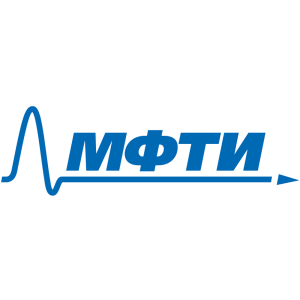Toward Totally Defined Nanocatalysis: Deep Learning Reveals the Extraordinary Activity of Single Pd/C Particles.
Тип публикации: Journal Article
Дата публикации: 2022-03-23
scimago Q1
wos Q1
БС1
SJR: 5.554
CiteScore: 22.5
Impact factor: 15.6
ISSN: 00027863, 15205126
PubMed ID:
35319871
General Chemistry
Catalysis
Biochemistry
Colloid and Surface Chemistry
Краткое описание
Homogeneous catalysis is typically considered "well-defined" from the standpoint of catalyst structure unambiguity. In contrast, heterogeneous nanocatalysis often falls into the realm of "poorly defined" systems. Supported catalysts are difficult to characterize due to their heterogeneity, variety of morphologies, and large size at the nanoscale. Furthermore, an assortment of active metal nanoparticles examined on the support are negligible compared to those in the bulk catalyst used. To solve these challenges, we studied individual particles of the supported catalyst. We made a significant step forward to fully characterize individual catalyst particles. Combining a nanomanipulation technique inside a field-emission scanning electron microscope with neural network analysis of selected individual particles unexpectedly revealed important aspects of activity for widespread and commercially important Pd/C catalysts. The proposed approach unleashed an unprecedented turnover number of 109 attributed to individual palladium on a nanoglobular carbon particle. Offered in the present study is the Totally Defined Catalysis concept that has tremendous potential for the mechanistic research and development of high-performance catalysts.
Найдено
Ничего не найдено, попробуйте изменить настройки фильтра.
Найдено
Ничего не найдено, попробуйте изменить настройки фильтра.
Топ-30
Журналы
|
1
2
3
|
|
|
Mendeleev Communications
3 публикации, 8.82%
|
|
|
Angewandte Chemie
2 публикации, 5.88%
|
|
|
Angewandte Chemie - International Edition
2 публикации, 5.88%
|
|
|
Nanomaterials
1 публикация, 2.94%
|
|
|
Journal of the American Chemical Society
1 публикация, 2.94%
|
|
|
Topics in Current Chemistry
1 публикация, 2.94%
|
|
|
Advanced Science
1 публикация, 2.94%
|
|
|
Chemical Communications
1 публикация, 2.94%
|
|
|
Inorganics
1 публикация, 2.94%
|
|
|
Catalysis Science and Technology
1 публикация, 2.94%
|
|
|
Chemical Science
1 публикация, 2.94%
|
|
|
Journal of Catalysis
1 публикация, 2.94%
|
|
|
ACS Catalysis
1 публикация, 2.94%
|
|
|
Doklady Chemistry
1 публикация, 2.94%
|
|
|
Russian Journal of Organic Chemistry
1 публикация, 2.94%
|
|
|
Journal of Energy Chemistry
1 публикация, 2.94%
|
|
|
Журнал органической химии
1 публикация, 2.94%
|
|
|
Доклады Российской академии наук Химия науки о материалах
1 публикация, 2.94%
|
|
|
Russian Chemical Bulletin
1 публикация, 2.94%
|
|
|
Journal of Chemical Information and Modeling
1 публикация, 2.94%
|
|
|
Advances in Imaging and Electron Physics
1 публикация, 2.94%
|
|
|
Kinetics and Catalysis
1 публикация, 2.94%
|
|
|
Russian Journal of General Chemistry
1 публикация, 2.94%
|
|
|
Applied Organometallic Chemistry
1 публикация, 2.94%
|
|
|
Chemistry
1 публикация, 2.94%
|
|
|
Advances in Organometallic Chemistry
1 публикация, 2.94%
|
|
|
Chinese Journal of Catalysis
1 публикация, 2.94%
|
|
|
ANALYTICS Russia
1 публикация, 2.94%
|
|
|
Journal of Organometallic Chemistry
1 публикация, 2.94%
|
|
|
1
2
3
|
Издатели
|
1
2
3
4
5
6
7
|
|
|
Wiley
7 публикаций, 20.59%
|
|
|
Elsevier
6 публикаций, 17.65%
|
|
|
Pleiades Publishing
4 публикации, 11.76%
|
|
|
MDPI
3 публикации, 8.82%
|
|
|
OOO Zhurnal "Mendeleevskie Soobshcheniya"
3 публикации, 8.82%
|
|
|
American Chemical Society (ACS)
3 публикации, 8.82%
|
|
|
Royal Society of Chemistry (RSC)
3 публикации, 8.82%
|
|
|
Springer Nature
2 публикации, 5.88%
|
|
|
Akademizdatcenter Nauka
1 публикация, 2.94%
|
|
|
The Russian Academy of Sciences
1 публикация, 2.94%
|
|
|
Technosphera JSC
1 публикация, 2.94%
|
|
|
1
2
3
4
5
6
7
|
- Мы не учитываем публикации, у которых нет DOI.
- Статистика публикаций обновляется еженедельно.
Вы ученый?
Создайте профиль, чтобы получать персональные рекомендации коллег, конференций и новых статей.
Метрики
34
Всего цитирований:
34
Цитирований c 2025:
12
(35.29%)
Цитировать
ГОСТ |
RIS |
BibTex |
MLA
Цитировать
ГОСТ
Скопировать
Eremin D. B. et al. Toward Totally Defined Nanocatalysis: Deep Learning Reveals the Extraordinary Activity of Single Pd/C Particles. // Journal of the American Chemical Society. 2022. Vol. 144. No. 13. pp. 6071-6079.
ГОСТ со всеми авторами (до 50)
Скопировать
Eremin D. B., Galushko A. S., Boiko D. A., Pentsak E. O., Chistyakov I. V., Ananikov V. P. Toward Totally Defined Nanocatalysis: Deep Learning Reveals the Extraordinary Activity of Single Pd/C Particles. // Journal of the American Chemical Society. 2022. Vol. 144. No. 13. pp. 6071-6079.
Цитировать
RIS
Скопировать
TY - JOUR
DO - 10.1021/jacs.2c01283
UR - https://doi.org/10.1021/jacs.2c01283
TI - Toward Totally Defined Nanocatalysis: Deep Learning Reveals the Extraordinary Activity of Single Pd/C Particles.
T2 - Journal of the American Chemical Society
AU - Eremin, Dmitry B.
AU - Galushko, Alexey S
AU - Boiko, Daniil A.
AU - Pentsak, Evgeniy O
AU - Chistyakov, Igor V
AU - Ananikov, Valentine P
PY - 2022
DA - 2022/03/23
PB - American Chemical Society (ACS)
SP - 6071-6079
IS - 13
VL - 144
PMID - 35319871
SN - 0002-7863
SN - 1520-5126
ER -
Цитировать
BibTex (до 50 авторов)
Скопировать
@article{2022_Eremin,
author = {Dmitry B. Eremin and Alexey S Galushko and Daniil A. Boiko and Evgeniy O Pentsak and Igor V Chistyakov and Valentine P Ananikov},
title = {Toward Totally Defined Nanocatalysis: Deep Learning Reveals the Extraordinary Activity of Single Pd/C Particles.},
journal = {Journal of the American Chemical Society},
year = {2022},
volume = {144},
publisher = {American Chemical Society (ACS)},
month = {mar},
url = {https://doi.org/10.1021/jacs.2c01283},
number = {13},
pages = {6071--6079},
doi = {10.1021/jacs.2c01283}
}
Цитировать
MLA
Скопировать
Eremin, Dmitry B., et al. “Toward Totally Defined Nanocatalysis: Deep Learning Reveals the Extraordinary Activity of Single Pd/C Particles..” Journal of the American Chemical Society, vol. 144, no. 13, Mar. 2022, pp. 6071-6079. https://doi.org/10.1021/jacs.2c01283.

















